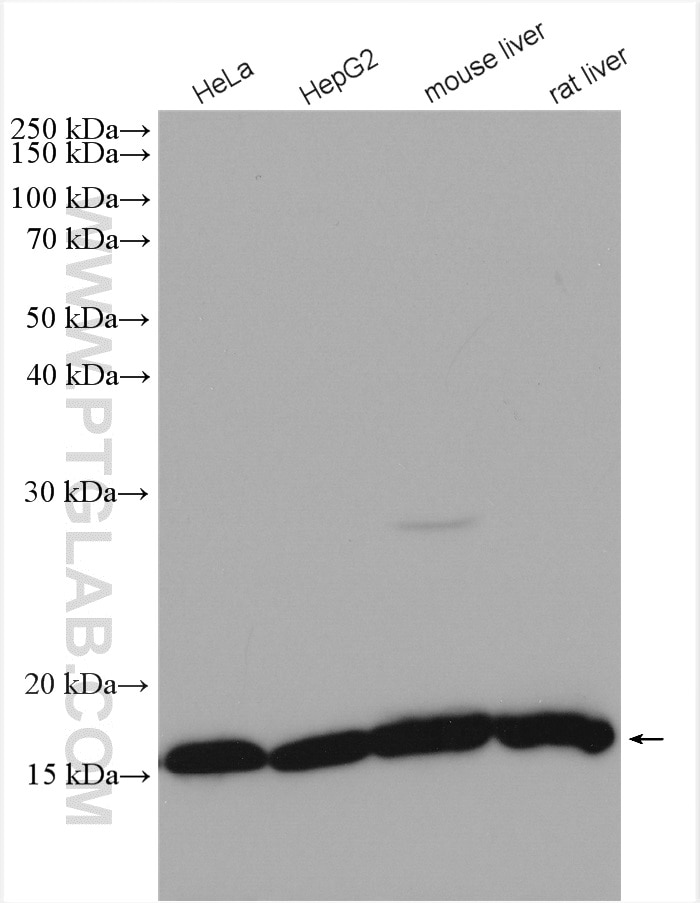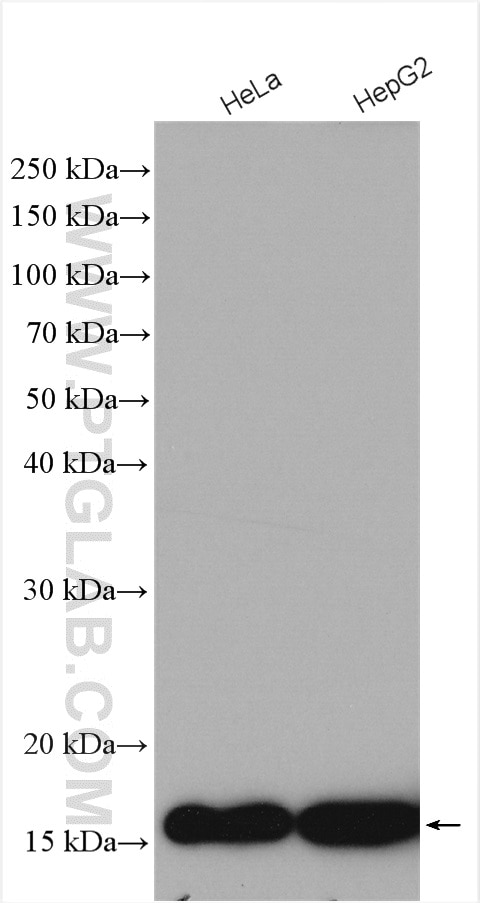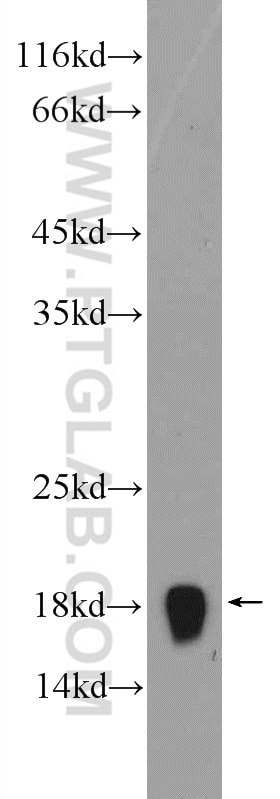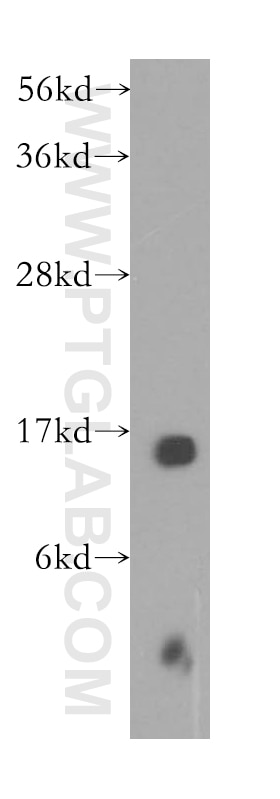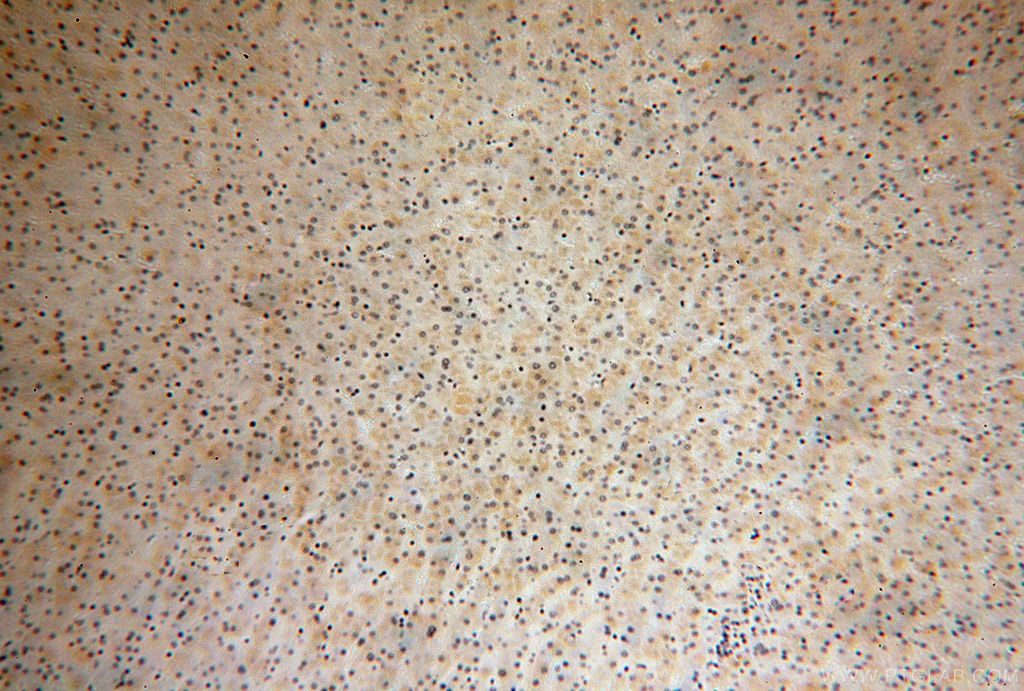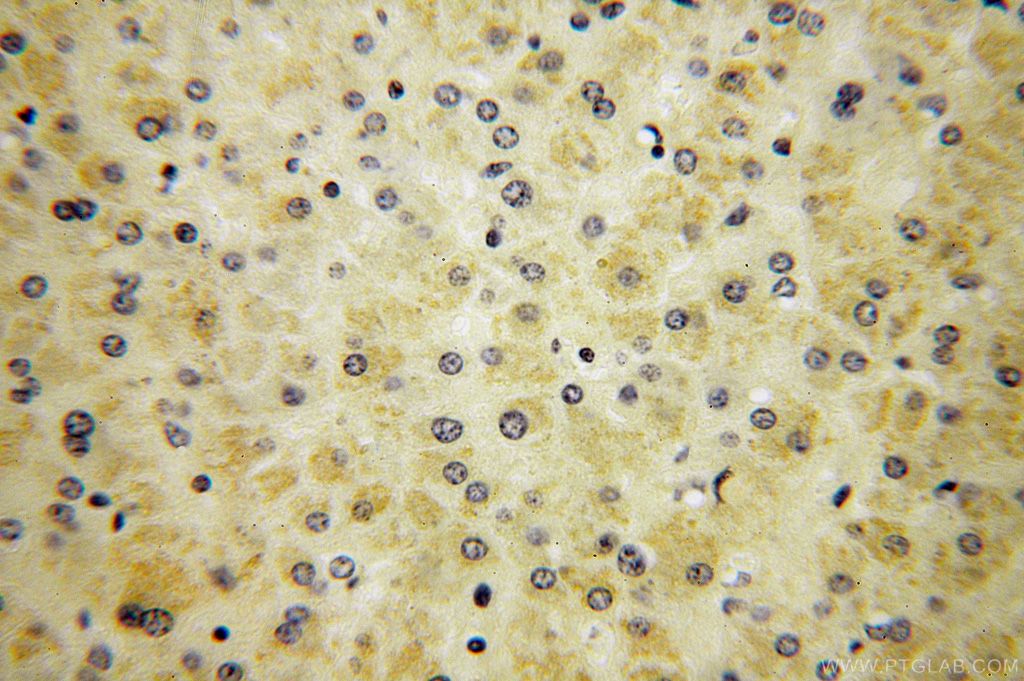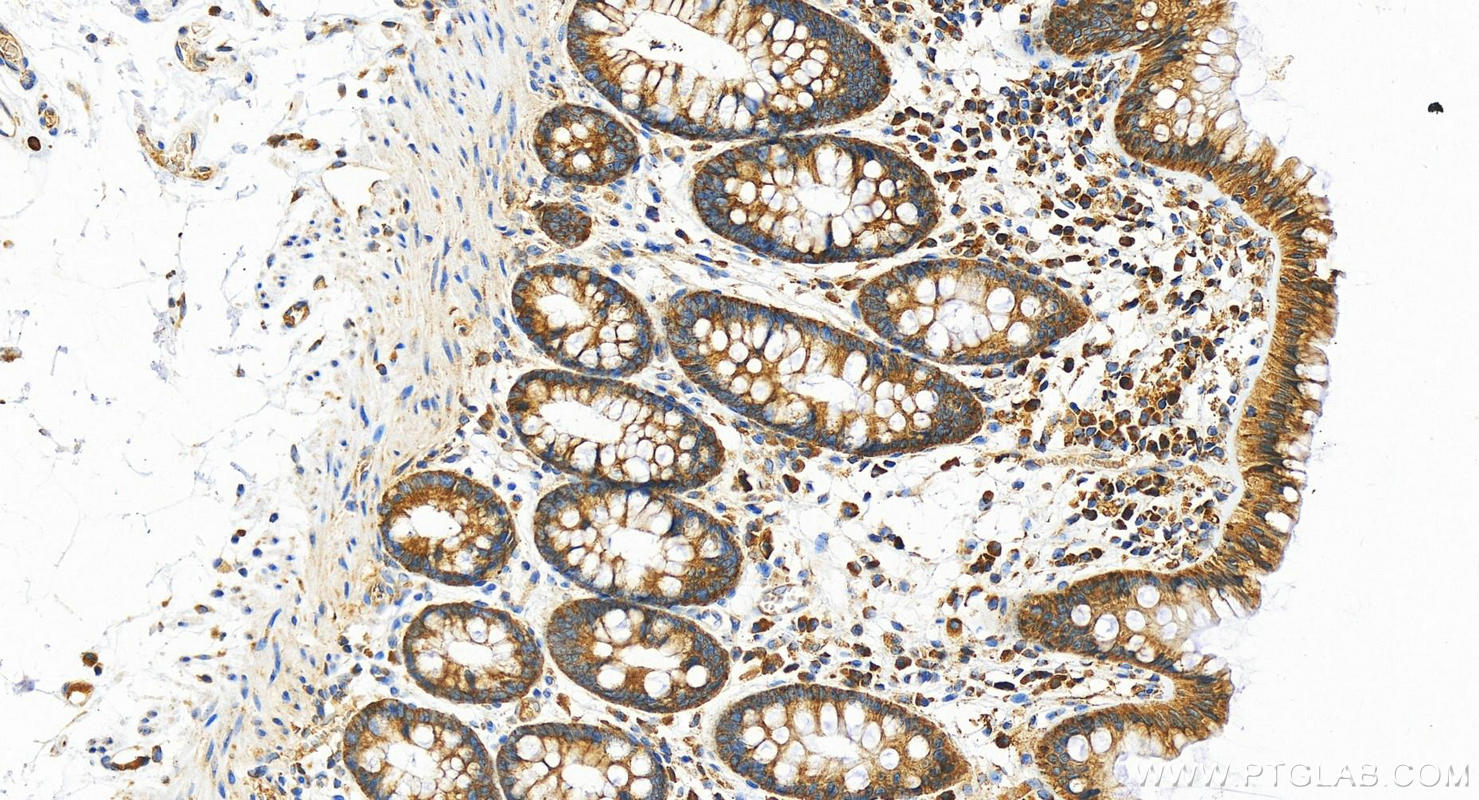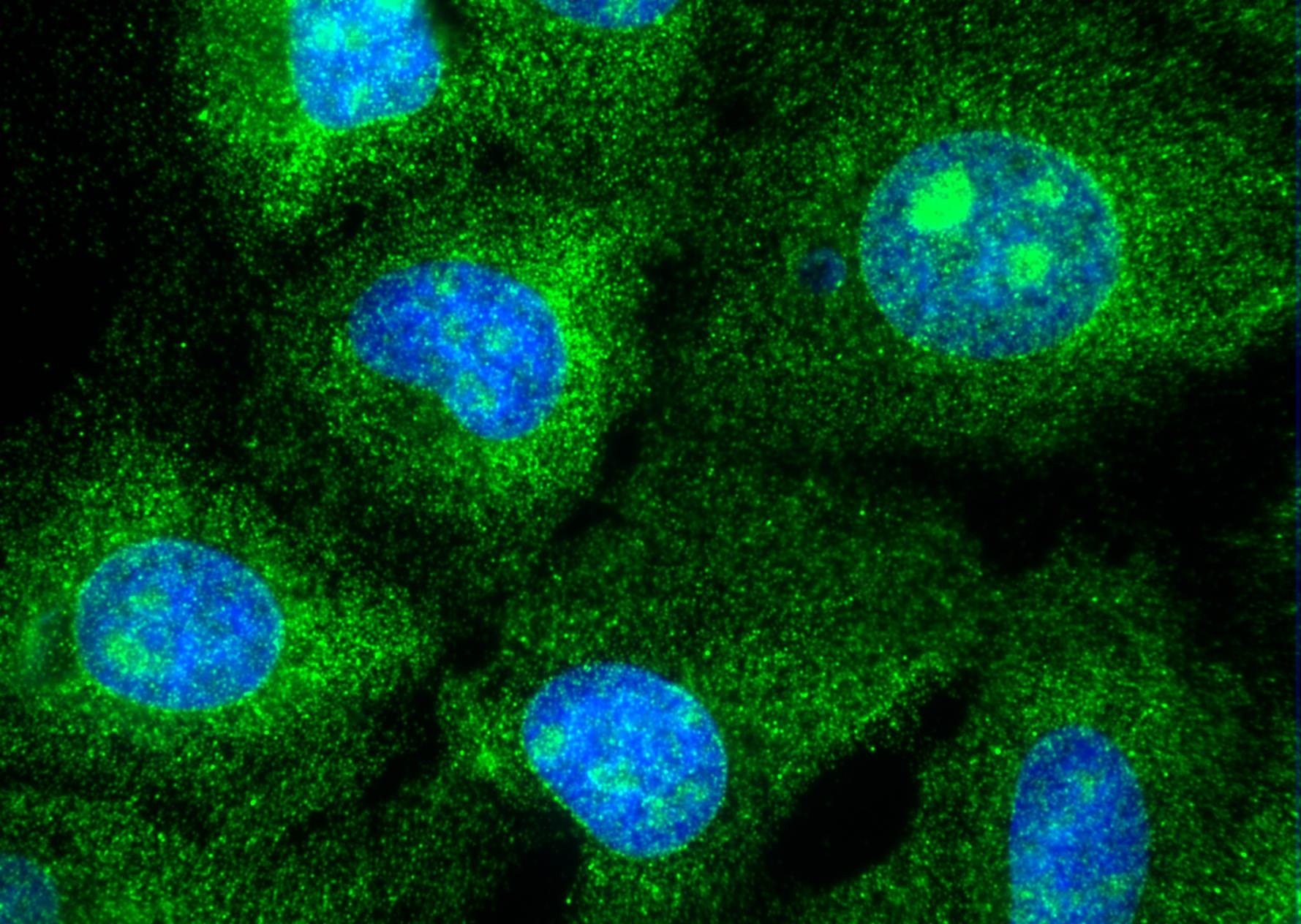Anticorps Polyclonal de lapin anti-RPS14
RPS14 Polyclonal Antibody for WB, IHC, ELISA
Hôte / Isotype
Lapin / IgG
Réactivité testée
Humain, rat, souris et plus (2)
Applications
WB, IHC, IF, ELISA
Conjugaison
Non conjugué
N° de cat : 16683-1-AP
Synonymes
Galerie de données de validation
Applications testées
| Résultats positifs en WB | cellules HeLa, cellules HepG2, tissu hépatique de rat, tissu hépatique de souris |
| Résultats positifs en IHC | tissu hépatique humain, human colon il est suggéré de démasquer l'antigène avec un tampon de TE buffer pH 9.0; (*) À défaut, 'le démasquage de l'antigène peut être 'effectué avec un tampon citrate pH 6,0. |
Dilution recommandée
| Application | Dilution |
|---|---|
| Western Blot (WB) | WB : 1:1000-1:4000 |
| Immunohistochimie (IHC) | IHC : 1:200-1:800 |
| It is recommended that this reagent should be titrated in each testing system to obtain optimal results. | |
| Sample-dependent, check data in validation data gallery | |
Applications publiées
| WB | See 10 publications below |
| IHC | See 1 publications below |
| IF | See 4 publications below |
Informations sur le produit
16683-1-AP cible RPS14 dans les applications de WB, IHC, IF, ELISA et montre une réactivité avec des échantillons Humain, rat, souris
| Réactivité | Humain, rat, souris |
| Réactivité citée | rat, Humain, poisson-zèbre, souris, arabidopsis |
| Hôte / Isotype | Lapin / IgG |
| Clonalité | Polyclonal |
| Type | Anticorps |
| Immunogène | RPS14 Protéine recombinante Ag10012 |
| Nom complet | ribosomal protein S14 |
| Masse moléculaire calculée | 16 kDa |
| Poids moléculaire observé | 16 kDa |
| Numéro d’acquisition GenBank | BC006784 |
| Symbole du gène | RPS14 |
| Identification du gène (NCBI) | 6208 |
| Conjugaison | Non conjugué |
| Forme | Liquide |
| Méthode de purification | Purification par affinité contre l'antigène |
| Tampon de stockage | PBS with 0.02% sodium azide and 50% glycerol |
| Conditions de stockage | Stocker à -20°C. Stable pendant un an après l'expédition. L'aliquotage n'est pas nécessaire pour le stockage à -20oC Les 20ul contiennent 0,1% de BSA. |
Informations générales
The mammalian ribosome consists of 4 RNA species and approximately 80 different proteins. The ribosomal proteins are encoded by complex gene families that include at least 1 active intron-containing gene and multiple processed pseudogenes[ PMID 3785212]. The RPS14 gene, encoding a ribosomal protein that belongs to the 40S ribosome, and mapping to the commonly deleted region (CDR) of the 5q- syndrome, shows haploinsufficiency in the CD34+ cells of patients with this disorder[PMID:22430631].
Protocole
| Product Specific Protocols | |
|---|---|
| WB protocol for RPS14 antibody 16683-1-AP | Download protocol |
| IHC protocol for RPS14 antibody 16683-1-AP | Download protocol |
| Standard Protocols | |
|---|---|
| Click here to view our Standard Protocols |
Publications
| Species | Application | Title |
|---|---|---|
Nucleic Acids Res Selenite targets eIF4E-binding protein-1 to inhibit translation initiation and induce the assembly of non-canonical stress granules. | ||
J Exp Bot The in vivo functions of ARPF2 and ARRS1 in ribosomal RNA processing and ribosome biogenesis in Arabidopsis. | ||
Free Radic Biol Med Identification of interacting partners of Human Mpv17-like protein with a mitigating effect of mitochondrial dysfunction through mtDNA damage. | ||
J Exp Bot Retention of OsNMD3 in the cytoplasm disturbs protein synthesis efficiency and affects plant development in rice. | ||
Blood Adv TLR7 ligation augments hematopoiesis in Rps14 (uS11) deficiency via paradoxical suppression of inflammatory signaling. |
